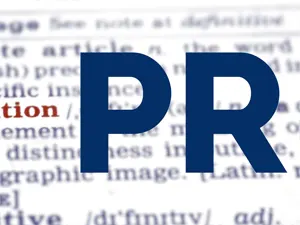
Half-full or half-empty?
The importance of dealing with framing should not be underestimated. Every statement or word has an impact on the recipient. Pictures, smells, noises or experiences form a frame of meaning in a message. Through framing, this message can be received differently by the recipient and can therefore have different effects. The “framing effect” thus describes how information is received differently depending on the recipient’s perception of reality.
We all frame, always
Communication without the intention to transmit information is not possible. Otherwise the interpretation of statements would also be practically unthinkable. How we absorb information is shaped by our experiences, ideas, judgements and prejudices. This creates a pattern of interpretation through which we process information. If a text or information refers to our interpretation patterns through so-called frames, framing can be a helpful tool to understand complex and complicated contents better.
Framing in use
Framing usually happens unconsciously. As communicators, however, we should use this purposefully. Those who deal intensively with language and often convey complicated and complex contents should set the framework carefully. The frame determines which section of the picture we see first and from which perspective we look at something. Therefore, it is indispensable for the transmission of messages.
For targeted use, clear and sharp terms should be used to keep the range of interpretation as small as possible. However, terms that are used again and again become so overused and semantically depleted that they lose all expressiveness. Think, for example, of the word “project” or the concept of sustainability. The framework has, so to speak, gone out of the water, the concept loses its selectivity and becomes arbitrary. Some of these terms and the associated frames are used precisely because they are so conveniently blurred. This way everyone can understand something different.
Loss vs. Gain
It should also be noted that framing can be applied in different ways. A distinction is made between positive and negative frames of meaning. The term “loss framing” is used when the recipient only sees the bad, negative and harmful effects. On the contrary, “gain framing” is a positive frame of meaning. This can be seen in the well-known example of half-empty or half-full glass. Thus, messages can be represented in different ways of framing and as a result have a different effect on the recipient.
Good to know
There is no communication without framing. Even if it usually happens unconsciously, language is always subject to a kind of frame. This can help to understand statements and words with complex contents better. But it should also be noted that if the truth is distorted by a frame, an enormous image damage can be the result. Especially in public relations, the framing effect has a high value and has to be considered.
Sources
www.kom.de/medien/warum-jeder-pr-profi-framing-kennen-sollte
https://www.contentmanager.de/wissen/framing-als-teil-von-kommunikation/




0 Comments